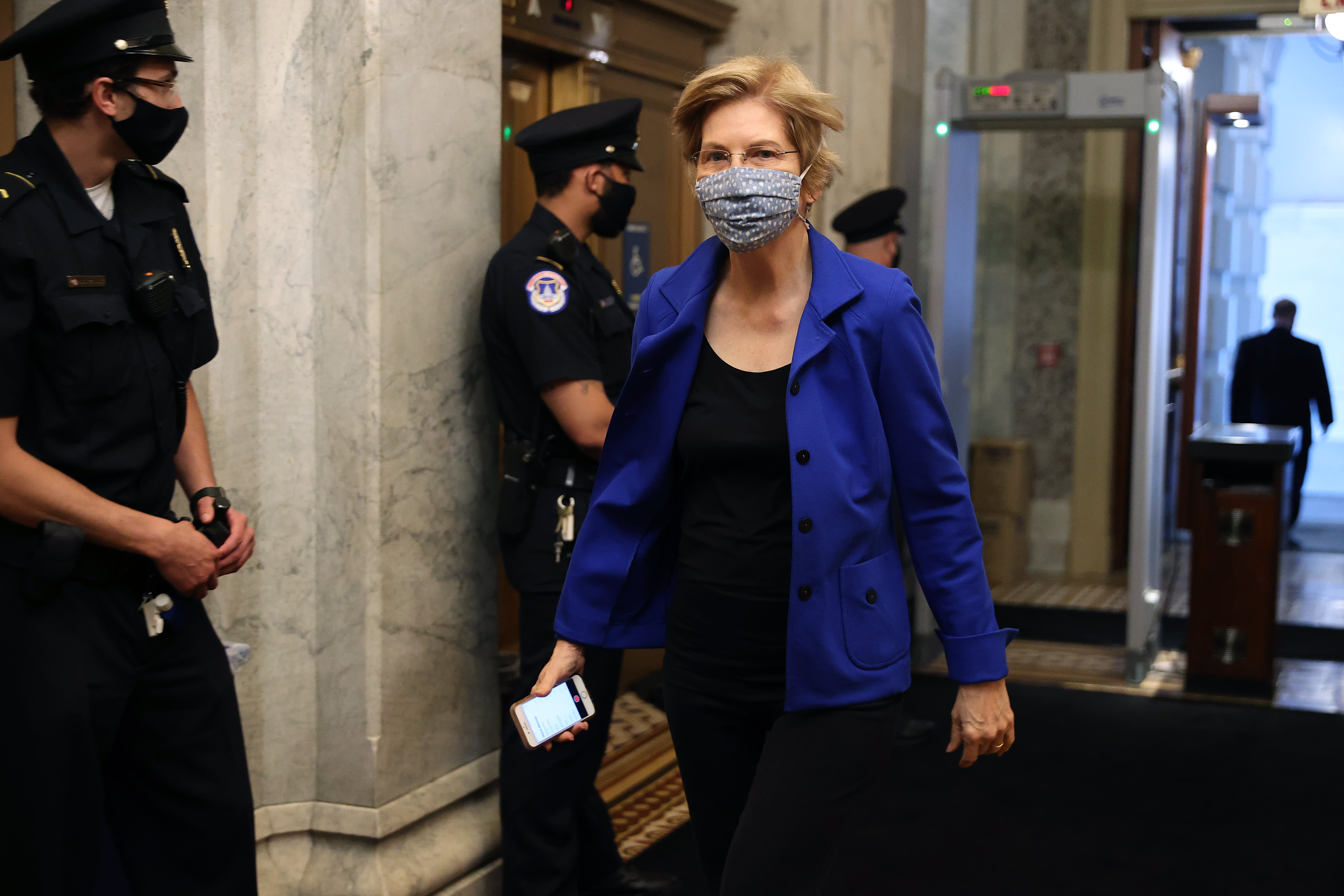
Wearing a face mask to reduce the chance of transmission of the novel coronavirus, Sen. Elizabeth Warren (D-MA) arrives at the U.S. Capitol for a vote May 18, 2020 in Washington, DC.
Chip Somodevilla | Getty Images
The coronavirus pandemic has put the spotlight on the United States’ reliance on foreign countries for key pharmaceutical products.
President Donald Trump signed an executive order last month that directs the Food and Drug Administration to create a list of essential medicines and calls on the Pentagon and Department of Veterans Affairs to buy critical pharmaceuticals from domestic suppliers.
“We cannot rely on China and other nations across the globe that could one day deny us products in a time of need,” Trump said on Aug, 6, in a speech at a Whirlpool factory in Clyde, Ohio.
But Democratic Sens. Elizabeth Warren of Massachusetts and Tina Smith of Minnesota are calling on Trump to go further to address the issue.
“We have introduced legislation, the U.S. Pharmaceutical Supply Chain Defense and Enhancement Act that requires comprehensive action to revamp domestic manufacturing of critical drugs and their key starting materials and address vulnerabilities in our nation’s supply chain,” the senators wrote in a letter sent to the president on Wednesday.
“We hope you will work together with Congress in a bipartisan way to pass this legislation and eliminate this public health and national security gap.”
The senators want his support for the legislation that would increase funding for agencies to buy domestically produced drugs, promote drug development in the U.S. and require drugmakers to annually report to the FDA information about their supply chains.
“Absent these meaningful actions, your Executive Order will not help address this legitimate national security and public health problem,” they wrote.
The U.S. imports more than 70 percent of the active pharmaceutical ingredients, the raw chemicals used to make drugs, according to the FDA, with the EU, India, China the largest suppliers. Production globally has shifted over the decades to countries that have more beneficial tax incentives, less-restrictive environmental laws, and/or cheaper costs of labor.
The president and lawmakers are in agreement that the overreliance on foreign components poses serious risk to public health and national security.
The president’s executive order also calls on the Environmental Protection Agency to streamline regulations, including accelerating siting and permitting approvals for domestic manufacturing.
Wary of the administration’s push to deregulate, Warren and Smith question the move “In developing this Executive Order, did the Administration consider the potential harms to the health and well being of the American people that could stem from waiving or expediting existing environmental regulations,” they said.
The White House declined to comment.
The administration’s efforts to boost domestic drug production have been chaotic at times. A $765 million government loan to Kodak to manufacture drug ingredients is on hold while the Securities and Exchange Commission investigates the company’s disclosure of the deal, which was announced at the end of July.
Warren has also called on the Pandemic Response Accountability Committee to investigate. “The fiasco surrounding the decision to offer, then revoke, the Kodak loan also raises larger questions about corruption, nepotism, and mismanagement in the Trump Administration’s response to COVID-19,” she wrote in an Aug. 20 letter to the committee’s acting chairman, Michael Horowitz.




